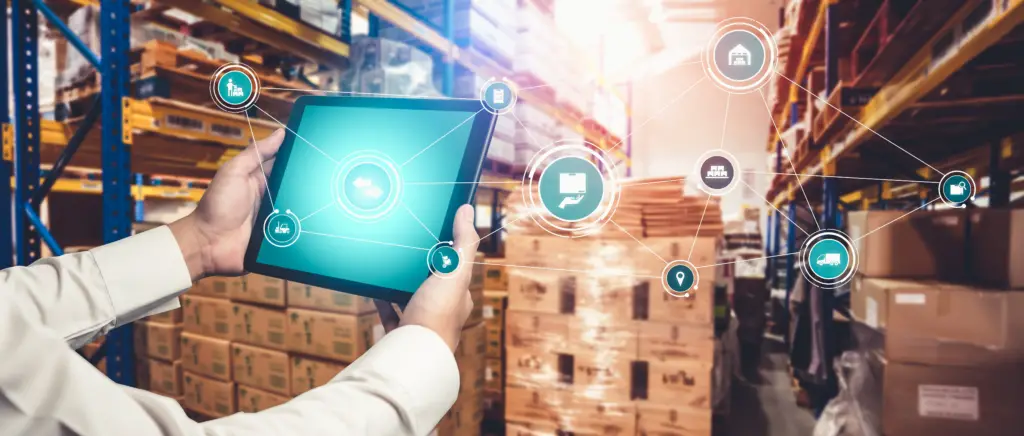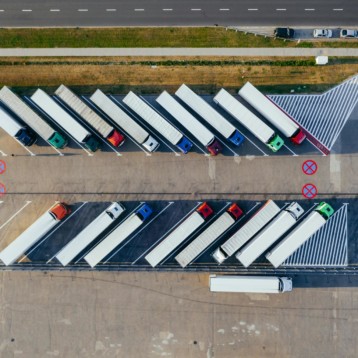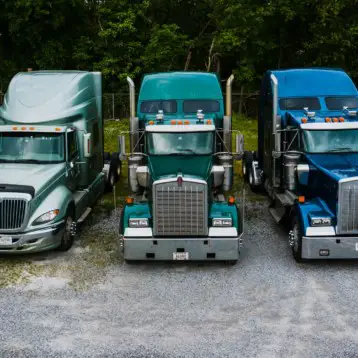
Ever since the introduction of computers and the internet, technology has been continuously evolving and infiltrating different business sectors. Gone are the days when the only mandate of supply chain management was to ensure that a product travels from the manufacturer straight to the consumer. Because today, customers’ demands have changed. People are now looking for quality, faster, and transparent services.
Additionally, globalization and the automation of other business departments are forcing the supply chain management process to incorporate advanced technologies in its functioning.
Major Technologies In Supply Chain Management

From ensuring that the raw material used is in perfect condition to seeing the finished products reach the intended consumer, the supply chain process is broad. Although each step of the chain can’t be automated or modified by technology, some functions are enjoying the benefits of technology to promote productivity, efficiency, customer satisfaction, and sustainability in their operations.
These technologies include:
- Automation And Robotics
Robots are among the earliest form of technology used in supply chain management. Initially, they were used to move goods from the warehouse to the transportation vessel. The use of robotics and automation have since been upgraded due to the integration of artificial intelligence and machine learning. Today, manufacturing software is being used to perform functions that were ideally meant for human labor.
Automation and robotics are being used to perform repetitive procedures such as packing, sealing, and picking orders. Therefore, companies can minimize the duration of certain processes and the cost of human labor.
Warehouse management is still the greatest beneficiary of automation. Automated machines are being used to store goods, keep track of them, and record their removal from the store. Therefore, helping optimize the storage capacity of warehouses. Besides that, the supply chain management process has become more efficient since human errors have decreased.
- Artificial Intelligence (AI)
Artificial Intelligence is the use of computer applications to mimic human behavior. Other than helping robots perform their functions, AI is used in supply chain management to aid in making predictive decisions. For example, AI is being used to diagnose machines used in supply chain management. The machines range from the ones used in production in the warehouse and the trucks and vehicles used for transportation.
Through AI, mechanical errors can be detected early and fixed, which can then help reduce or even avoid downtime that would have otherwise been required. Other than that, such predictions can also reduce the risk of accidents happening due to using faulty machines.
- Machine Learning
Machine learning is a type of artificial intelligence that uses data and algorithms to predict outcomes. It’s arguably one of the most used technologies in supply chain management. Through machine learning, companies can make an informed decision on the best transport paths to use, when to dispatch cargo, and other critical decisions.
Machine learning software works by studying past data and patterns and then making decisions based on those patterns. For instance, when it comes to suggesting the best route, the software will review the past performance of transportation before making a recommendation. If the transportation was fast and efficient in the past, the software might recommend the current way. However, if the route has a pattern of trucks getting stuck or any other security threats, the software may suggest better alternatives.
Logistic companies are also using machine learning to avoid problems like striking workers at ports, bad weather, and geopolitical factors that may affect the supply chain process. For example, machine learning software can collect data from the internet and warn supply chain managers of a predicted worker strike happening in a given place. The manager may then decide against dispatching cargo to the said location, avoiding delays in delivery of the goods had they been held off at the port.
- Internet Of Things (IoT)
Supply chain management is also using the Internet of Things (IoT) to further enhance its communication, visibility, connectivity, and transparency, internally and externally. Internet of things refers to the streamlined connection across various devices using the internet.
Through IoT, supply chain companies can now communicate in real-time. Therefore, if the goods being transported should be maintained at a given temperature, technologies fitted with IoT are put in place to detect any significant temperature change. When communicated earlier, the temperature is maintained at optimum, which aids in the seamless transportation of the goods.
IoT is also being used to build the visibility and transparency of logistic companies. In the previous setup, companies are able to track their cargo using GPS (Global Positioning System). However, this can be tricky, especially since it had challenges such as losing signals during a storm.
Today, however, even the cargo receiver can track their goods right from their dispatch to their arrival. This has become handy in helping build transparency between logistic companies and their clients.
- Blockchain Technology
Primarily, blockchain was founded for cryptocurrency trading. However, this technology has also found other uses in different businesses, including supply chain management. Blockchain is one of the technologies that is being used to build visibility and transparency in the operation of logistic companies.
For starters, some companies are using smart contracts to initiate transactions. For example, if two competing logistic companies need to make transactions and are keen on keeping their internal information, they can choose to use a smart contract. A smart contract only closes once the set of rules agreed upon by the two parties is met. This way, one party can’t short-change the other.
Blockchain technology can also be used as an aid in the record of inventory. The logistic company can keep track of all its transactions without having an endless paperwork trail. These digitized records are also considered safer than storing information thru email and other electronic record keeping. And due to its dependence on technology, blockchain has invested in more robust cloud-based systems, which offer superior protection features for documents.
Therefore, blockchain helps create transparency between parties while at the same time offering seamless, protected transactions. This has contributed to increasing the efficiency of the supply chain management process.
To Sum It Up
Like any other business, supply chain management needs to incorporate technology to scale up its operations. Even though the entire process of logistics can’t be automated, technologies such as robotics, Artificial Intelligence, machine learning, the Internet of Things, and blockchain are proving to be indispensable in the supply chain process.
If you have been wondering how to start automating your logistics company, the listed technologies above are a good place to start.










